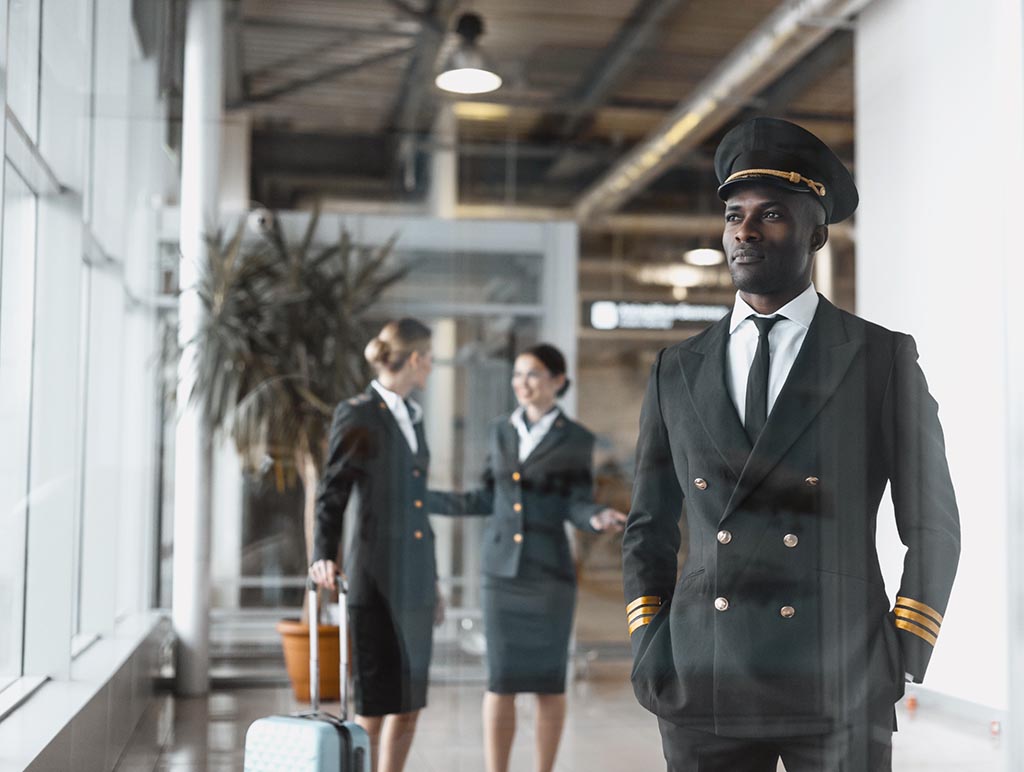Airline Pilot Careers
Begin Your Dream Career as a Professional Commercial Pilot
As the demand soars for commercial pilots, more people are wondering how to get into the field. We train airline pilots from around the country, enabling them to go on to lucrative careers. Whether you want to fly an Airbus or a Boeing aircraft, we can help make that happen. We operate a fleet of new generation aircraft with state-of-the-art avionics. This puts you in the pilot’s seat of the best training aircraft!
Becoming a Commercial Airline Pilot
Pilot training is a multistep process, periodically marked by issuance of a series of certificates and ratings which confer pilot privileges based on training received and demonstrated proficiency.
Starting with a Private Pilot Certificate, the usual progression is Instrument Rating, Commercial Pilot Certificate, Multi Engine Rating, Flight Instructor Certificate, and Airline Transport Pilot Certificate.
Each rating and certificate has testing and training requirements, including minimum amounts of flight time. These requirements are specified in two sets of government regulations, Part 61 and Part 141 of the Federal Aviation Regulations (FARs). Part 61 training programs are somewhat less structured under the FARs, with their issuance of ratings and certificates based on flight times and written and practical test performance evaluated by FAA-approved third-party examiners. Part 141 programs proceed according to a detailed and prescriptive syllabus pre-approved by the Federal Aviation Administration (FAA) which spells out exactly how students will be trained to achieve the required standards. Traditionally, Part 141 is used primarily for career pilot training, though it is not required. Most 141 programs now being offered are because of VA or other financing requirements or to meet visa requirements of international students.
Once a career bound pilot has at least 250 hours of flight time and a commercial certificate with the required ratings, he or she can start earning money for flying, rather than paying for it.
In most cases this is done by working as a flight instructor. Depending on how beginning commercial pilots have earned their certificates, they will need to accumulate between 1000 and 1500 hours of flight time to qualify for a Restricted Airline Transport Pilot Certificate, which is the basic qualification for a position as a First Officer (copilot) at a regional airline.
Airline Lifestyle and Travel
Airline pilots are some of the most skilled and highly trained professionals in the aviation industry. They are responsible for safely transporting millions of passengers every day, making split-second decisions, and managing complex equipment.
The airline pilot lifestyle offers a number of benefits and advantages that can make it an attractive career choice. Let’s take a closer look at some of the pros of being an airline pilot:
- High Salary and Benefits: One of the most appealing aspects of the airline pilot lifestyle is the high salary and benefits package that comes with the job. Pilots also typically receive benefits such as health insurance, retirement plans, and paid time off.
- Travel Opportunities: Another major advantage of the airline pilot lifestyle is the opportunity to travel to new and exciting destinations. Pilots get to see the world and experience different cultures, which can be a major perk for those who love to explore new places. Some airlines even offer free or discounted travel for pilots and their families, which can be a great way to save money on vacations.
- Job Security and Stability: In general, the airline industry is considered to be a stable and secure field. Despite occasional fluctuations in the economy, people will always need to travel, and airlines will always need pilots to fly their planes. This means that the job outlook for airline pilots is generally positive, and there is a good level of job security in the industry.
- Personal Growth and Development: Becoming an airline pilot requires a significant amount of training and education, which can lead to personal growth and development. Pilots must be highly disciplined, responsible, and detail-oriented, which can help them develop valuable skills that can be applied in other areas of their lives. Additionally, the experience of flying a plane can be incredibly fulfilling and rewarding, which can contribute to a sense of personal satisfaction and accomplishment.
Becoming an airline pilot can be a dream come true for many individuals who are passionate about aviation and love to travel. By attending a top academy for commercial flight instruction, such as Rexair, seeking support from others in the industry, and staying focused on their goals, aspiring pilots can find success and satisfaction in this exciting and rewarding profession.
RexAir Aviation Academy is Your Future Commercial Pilot School!
Contact us today to learn more about our top-quality commercial pilot programs.

